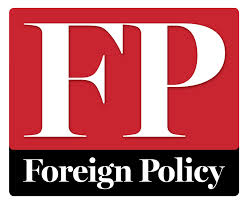Political Systems
At the end of the Cold War, the idea spread that liberal democracy was going to take over the world. In reality, authoritarian regimes have resisted, and political systems remain varied.

South Africa : internal dissensions within the ANC
How to explain the decline of the ANC during the last election? Why 2017 is a decisive year for the ANC? How to explain the student protests during the past two years?
Meeting Macron in the Middle. How France and Germany Can Revive the EU
Macron's presidency offers a rare chance to revive the French-German relationship just when Europe needs it most.
Foreign Policy Challenges for the Next French President
France’s current presidential campaign has created an unprecedented situation fuelled by revelations and a total absence of restraint, but it has not truly taken account of the disruptions of the last year: Brexit, the attempted coup in Turkey, the election of Donald Trump, the recapturing of Aleppo by Bashar al-Assad, Xi Jinping’s declarations about “economic globalization”, or the behavior of North Korea. The debate, or rather its absence, can be looked at in two ways.
Alternative für Deutschland: What risks for Germany?
The AfD - Alternative for Germany – founded in opposition to Angela Merkel’s policy line of supporting southern European countries, has quickly become part of the political family of "right-wing populism" in Europe, with whom it cultivates close ties.
Trade without Religion between Turkey and Syria
A saying claims that trade has no religion; it even adapts to a war situation, as demonstrated by the real-time reorganisation of trade channels at the Turkish-Syrian border.

Democratic Deconstructions
Today’s democratic governments appear less legitimate and their longevity less assured than ever.
Trump and the Crisis of American Democracy
Trump’s victory in the 2016 presidential election is an expression of the crisis of American democracy.


Does Merkel want to regain popularity at the expense of Europe?
Angela Merkel loosing the elections in Germany could be one of the many electoral suprises in 2017. Surveys on voting intentions for the legislative elections in September show that her opponent Martin Schulz (social-democrat) has started overtaking her.


Tough Balancing Act for Japan’s Abe in Second Meeting With Trump
Japanese Prime Minister Shinzo Abe was the first foreign leader to meet with U.S. President-elect Donald Trump after his election. On Friday, Feb. 10, he will meet with President Trump, before spending the weekend at Mar-a-Lago in Florida.
Japan and France: Slowly but Surely Moving Forward on Security Cooperation
Despite being geographically distant, France and Japan share a number of converging interests.
Support independent French research
Ifri, a foundation recognized as being of public utility, relies largely on private donors – companies and individuals – to guarantee its sustainability and intellectual independence. Through their funding, donors help maintain the Institute's position among the world's leading think tanks. By benefiting from an internationally recognized network and expertise, donors refine their understanding of geopolitical risk and its consequences on global politics and the economy. In 2024, Ifri will support more than 70 French and foreign companies and organizations.










